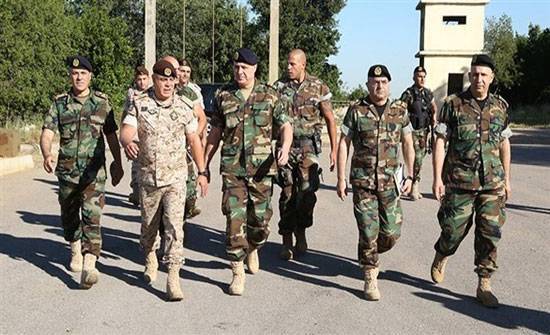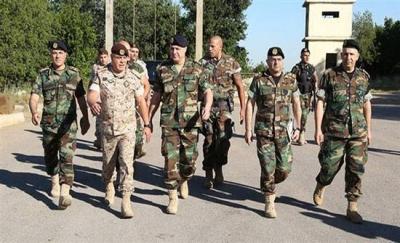Next Thursday, the Lebanese army will launch civilian tourist flights to tour over Lebanon, in a move aimed at generating revenue for the armed forces affected by the ongoing economic collapse in the country. Against the backdrop of an unprecedented economic crisis, classified by the World Bank as one of the most severe in the world since 1850, coupled with chronic political paralysis, the military institution has not escaped the repercussions of the collapse and is in need of support even to provide food and medical care for its personnel.
Earlier this month, France hosted an international conference dedicated to supporting the Lebanese army, while the international community continues to refrain from providing any financial assistance, awaiting the formation of a government capable of implementing crucial reforms. The army announced on its website that it would begin conducting flights titled "Lebanon... from Above" starting July 1, using a Raven helicopter from the bases in Amchit (north) and Riyaq (east).
Those interested must register on a special platform, with each flight lasting 15 minutes and limited to three passengers, at a cost of $150 to be paid in cash. A military source told AFP that the aim of the flights is "to promote Lebanese tourism in a new way, in addition to supporting the air force."
After gradually losing more than 95% of its value against the dollar, the salary of a regular soldier is now worth less than $100, compared to around $800 before the crisis began in the summer of 2019. A year ago, the army leadership had to remove meat from the soldiers' meals before implementing significant budget cuts.
Around 20 countries agreed at the Paris conference to provide urgent assistance to the army for its "essential role in stabilizing the country." The army, according to French sources, presented "very specific needs" regarding food supplies such as milk and flour, as well as medicines and spare parts for equipment maintenance and fuel, estimated to be "in the tens of millions of euros."
Such assistance is often designated for countries engulfed in conflicts or facing natural disasters. The urgent needs reflect the "critical character" of the situation within the military institution, which its leadership has repeatedly warned could worsen its ability to carry out its military duties. According to a video clip posted by the army command on Twitter this month, Army Commander Joseph Aoun stated, "We are doing the impossible to ease the suffering and economic burdens on the military personnel."
Since the Beirut port explosion on August 4, the army has relied heavily on food aid, primarily from France, Egypt, the United States, and Turkey. Other countries, including Iraq, have also provided medical and fuel assistance.




